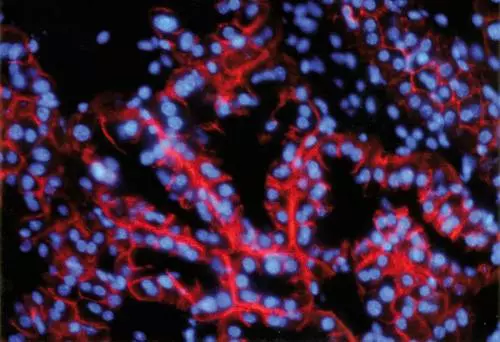The Problem Behind the Problem
 Cancer biologists cannot solve the cancer problem by themselves, nor can anyone else for that matter. I’m a cancer biologist, so what do I mean when I say this? Allow me to explain. I’m not talking about understanding the staggering complexity of cancer, which requires many researchers ranging from engineers to physicians. That’s another topic, for another (many other) article. What I want to talk about here is a higher order complexity at the societal level that prevents people from having access to cancer treatment, or to something as basic as a preventive measure.
Cancer biologists cannot solve the cancer problem by themselves, nor can anyone else for that matter. I’m a cancer biologist, so what do I mean when I say this? Allow me to explain. I’m not talking about understanding the staggering complexity of cancer, which requires many researchers ranging from engineers to physicians. That’s another topic, for another (many other) article. What I want to talk about here is a higher order complexity at the societal level that prevents people from having access to cancer treatment, or to something as basic as a preventive measure.
The fact of the matter is, no matter how good our cancer treatments or preventive knowledge become, if people don’t have access to them or cannot implement them, then their effectiveness is not applicable. This is why advocates in the fields of public health and social welfare are so important. Simply teaching people in third world countries to wash their hands regularly can have a tremendous impact on decreasing mortality. Washing hands isn’t “rocket science”—it’s “people science”; and, it’s quite effective against the spread of germs. While hand washing doesn’t prevent cancer, it’s a great example of how public health information can go a long way in dealing with healthcare issues.
Case Study: Effective Pesticides, More Crops, More Cancer
The plight of migrant farm workers is a great example of the societal complexity that is beyond the prowess of cancer biology. Migrant farm workers are exposed to chemical pesticides at doses that cause cancer, among other ailments. Let’s take a step back and look at the web of problems beyond what can be seen through the lens of a microscope. In addition to the cancer problem, there is the public health issue of widespread chemical exposure, the lack of legal representation required get compensation and to secure future prevention, and the lack of access to health care, let alone the inability to afford health care. Thus, the problem is actually much bigger than just cancer. Having more effective chemotherapies only addresses one issue in this web.
Seeing the Whole Elephant, Not Just It’s Parts
During graduate school, I attended a commencement ceremony for graduate students from a biology department. The commencement speaker was a biochemist whose career had spanned many decades, which gave him a front row seat to the intellectual explosion that occurred in the past 60 years of molecular biology. Speaking to the dozens of graduate students on stage whom were about to be awarded their degrees, he gave them a charge. He reflected upon the ways in which his generation had solved many societal problems, but acknowledged that in the wake of their success, they created new ones. “This is why we need you,” he said, “to solve the problems that we have created.”
Indeed, this charge will remain true for any future generation. Science has produced many materials and chemicals for the purposes of human flourishing—with no sign of letting up—but these inventions can negatively impact human health in unintended ways. As always, disadvantaged populations are the most vulnerable to these negative effects. As people who are privileged with adequate information, it falls upon us to ensure that others are protected. It’s not just about inventing better treatments, which is part of the answer. It’s about making sure that people are treated humanely, which can be done regardless of whether or not treatments improve.
Photo Credit: Wisconsin University




